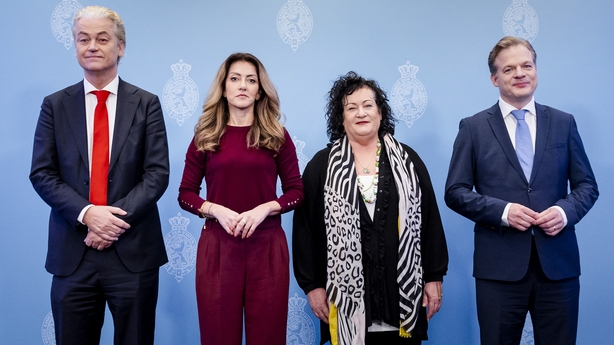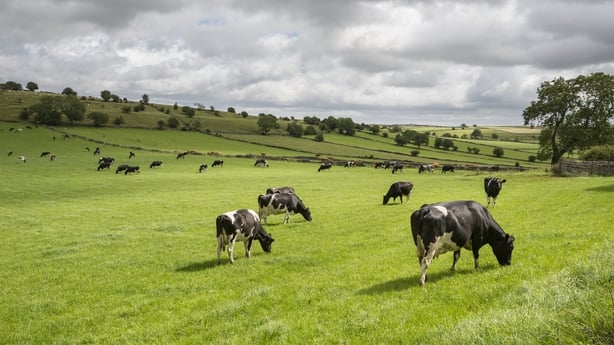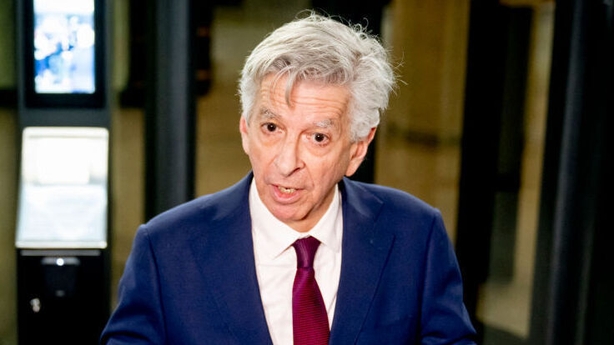The newly agreed Dutch coalition government has proposed what it called the "strictest ever" asylum policy, including an opt-out from European Union rules and vowed to examine moving its Israel embassy to Jerusalem.
The 26-page coalition agreement emerged early today after six months of talks between four parties following the election victory of far-right leader Geert Wilders.
"Anyone who reads the report can see that a lot of things are going to change in the Netherlands," Mr Wilders told reporters as the agreement was officially presented.
He said it was a "historic" day that his far-right PVV Freedom Party was now in government.
"We are writing history today... the sun is going to shine again in the Netherlands," Mr Wilders said.
The agreement said that "concrete steps will be taken towards the strictest ever entry rules for asylum and the most comprehensive ever package to control migration".
The parties said they would file a request to the European Commission for an opt-out on European asylum policy "as soon as possible".
People without a valid residence permit will be deported "by force if necessary," the report said, which is titled "hope, courage and pride".
Mr Wilders said the plan would make the Netherlands less attractive for asylum seekers, adding that "people in Africa and the Middle East will start thinking they might be better off elsewhere".

The Netherlands will join Hungary and Poland's previous nationalist government in challenging EU migration policy. Brussels is likely to resist, as EU countries have already agreed on their migration pact and opt outs are usually discussed in the negotiating phase.
"We have a new pact on migration and asylum, which has been voted upon and confirmed and therefore has to be applied," EU Commission spokesman Eric Mamer said at a press briefing in Brussels.
The Dutch coalition parties said labour migration would also be curbed and admittance of foreign students to Dutch universities will become stricter.
Workers from outside the EU who do not have specific knowledge or expertise would need a work permit and recruiting agencies will face stricter regulation.
The coalition said it would also strive to limit free movement for people from countries joining the EU in the future.
Tech industry association FME, representing firms including semiconductor supplier ASML, said it was concerned such measures would hamper hiring by tech firms.

The government will stick to internationally agreed climate goals, but will not add any national restrictions on top of them.
Plans under the previous government for an additional national carbon emissions tax for industry will be scrapped.
The report said that offshore gas production in the North Sea will be increased, while the government will continue with plans to build four nuclear reactors in the coming decade.
The coalition said farmers will not be forced to reduce the large amount of livestock in the Netherlands, which was meant to cut back nitrogen oxide emissions, and farmers near nature reserves will not be forced to close businesses to meet environmental goals.
It will strive to ease EU environmental regulations for farmers, it said, adding while domestic regulations will not be made stricter than EU laws prescribe.
Diesel for farmers will become cheaper, it said.
Dutch embassy
On foreign policy, the parties commit to keeping the Netherlands as a "constructive partner" in the European Union and support Ukraine "politically, militarily, financially and morally".
The Netherlands will make it legally binding to spend at least 2% of Dutch gross domestic product on defence, in line with NATO agreements, it said.
The agreement calls to examine the idea of moving the Dutch embassy in Israel from Tel Aviv to Jerusalem.
Jerusalem is claimed by both Israelis and Palestinians, but most governments avoid putting embassies there in order to not prejudge the outcome of negotiations for a lasting peace.
"Taking into account solutions to the Israel-Palestinian conflict and diplomatic interests, we will examine when the embassy can be moved to Jerusalem at an appropriate time," the report said.
Spending on foreign development aid will be cut by €2.4 billion, it said.

Plans will be financed with around €14 billion euros in spending cuts through 2028, including €1 billion through a freeze of government salaries and €100 million on the public broadcaster's budget, the report said.
It said energy and income taxes will be lowered, while levies on share buybacks by listed companies and on banks announced late last year will likely be scrapped.
It added that unemployment welfare would be limited to 18 months.
The parties have still not agreed on who will be prime minister of the European Union's fifth-largest economy to replace Mark Rutte, who is almost certain to be tapped as the new NATO secretary general.
They appointed civil servant Richard van Zwol as the so-called "formateur" who will oversee the formation of a cabinet, but he is not the intended candidate.
The main contender looks to be former education and interior minister Ronald Plasterk, who also played a key role in overseeing the initial talks.
Mr Wilders has already reluctantly agreed to give up his dream of becoming prime minister amid widespread unease over his anti-Islam, anti-European views.
In March, the four parties agreed to aim for a partially technocratic cabinet made up of 50% politicians and 50% from outside politics.
Parliament is expected to debate the government plans on 22 May after which an independent intermediary will be tasked with forming the cabinet of ministers, a process that is expected to take weeks.

